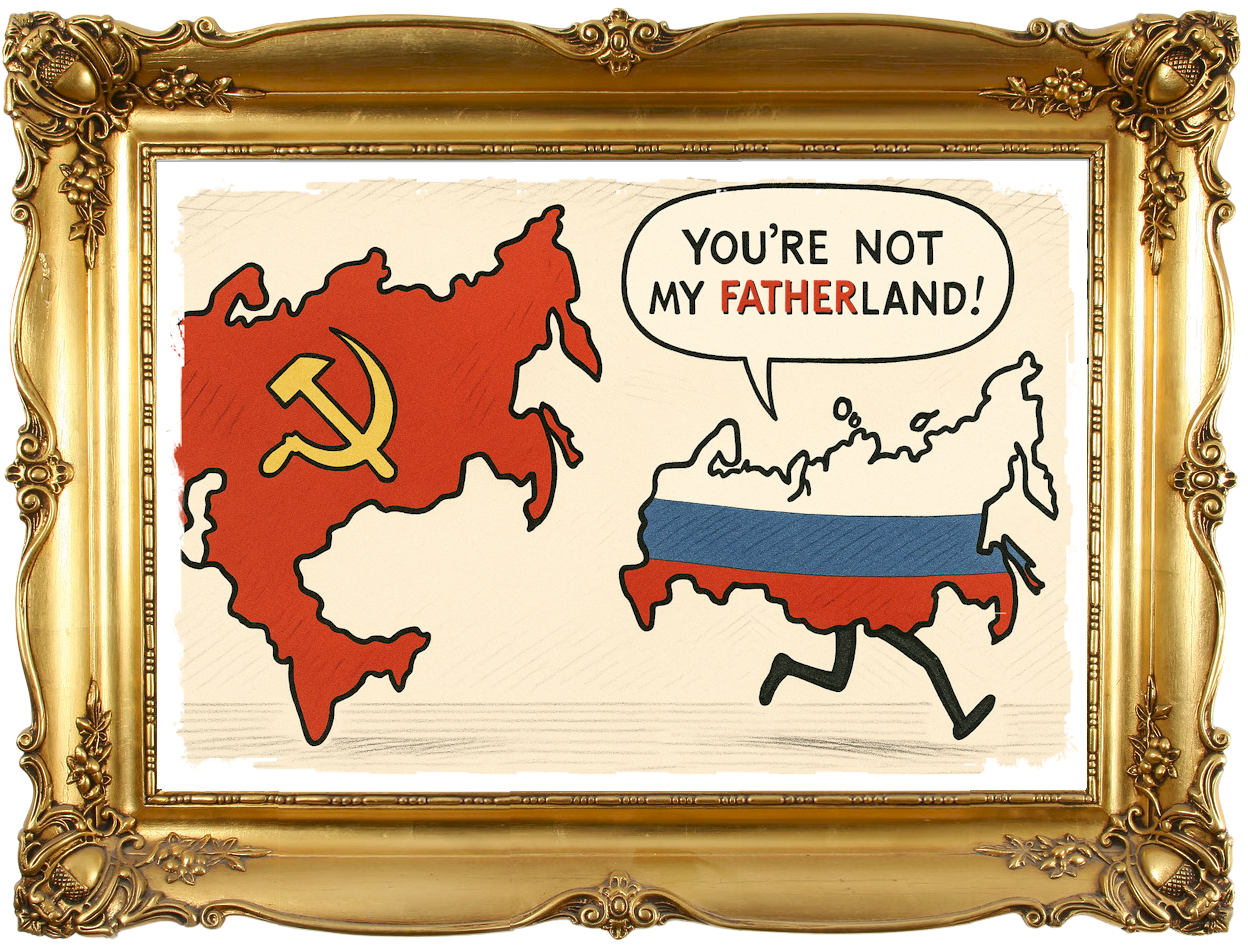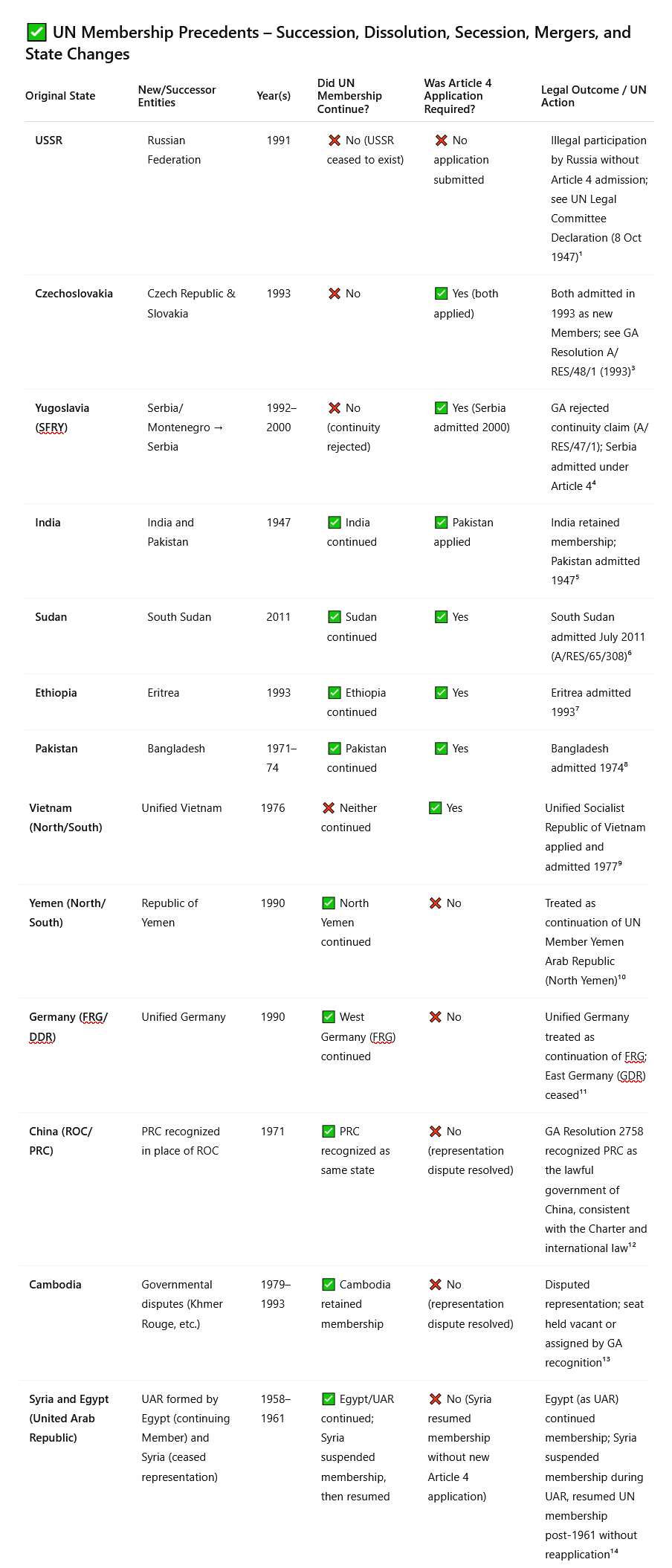State Succession and "Inheritance" in International Law and to United Nations Memberships Explained | Knowledge is Power
Why Russia could not claim the USSR's memberships - a map of the law.
Why Russia could not claim the USSR’s memberships - a map of the law.
‘’Succession’‘ of States in International Law — States are not Mothers and Fathers. | Knowledge is Power
(To be expanded)

Once you understand 3 simple legal concepts, everything makes sense.
Here are the legal concepts:
What is “succession” in relation to States?
Article 1(b) of the 1978 Vienna Convention On Succession Of States In
Respect Of Treaties1 sets out the customary International law definition:"succession of States" means the replacement of one State by another in the
responsibility for the international relations of territory.” It is not “inheritance”. It is simply control of the land.A state ceases to exist when it no longer contains territory or population. That happened when all remaining states left the USSR on 21 December 1991. There was nothing left. All rights, including memberships of the United Nations, cease to exist.
On the 1947 Legal Committee Declaration:
The UN General Assembly Legal Committee Declaration (8 October 1947) formally clarified that UN membership is not inheritable, and that new states formed by division, separation, or succession must apply under Article 4. This declaration confirmed and built upon the earlier authoritative UN Secretariat Legal Opinion (8 August 1947), which provided the foundational internal legal interpretation of UN membership and succession principles. Together, these form the primary legal basis for UN membership practice regarding state succession.
x
TBC
x
The 1978 Vienna Convention On Succession Of States In
Respect Of Treaties has only 23 signatories. However this definition along with much of the Convention encodes existing Customary International Law.




